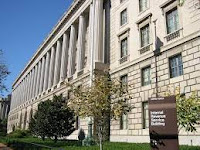The coalition is made up of the American Institute of CPAs (AICPA), Latino Tax Pro, the National Association of Black Accountants (NABA), National Association of Enrolled Agents (NAEA), National Association of Tax Professionals (NATP), National Conference of CPA Practitioners (NCCPAP), National Society of Accountants (NSA), National Society of Black Certified Public Accountants (NSBCPA), National Society of Tax Professionals (NSTP), Padgett Business Services, and Prosperity Now.
Among the findings in the National Taxpayer Advocate's 2021 Annual Report to Congress was that the IRS took much longer than usual to process taxpayer responses to its notices, in some cases so long that automated systems triggered compliance notices to taxpayers who had been waiting on the IRS to communicate back.
A taxpayer that sent a request for abatement of a math error assessment (of which the IRS sent approximately 14 million in 2021), for example, could have their assessed liability moved to the collection process automatically if the IRS failed to reprogram its system to properly reflect the situation, in which the taxpayer isn't at fault. Though the IRS tried to prevent improper enforcement, "there were gaps," according to the NTA report.
The IRS Last Year Answered Only One of Every Nine Calls
To Its Customer Service Representatives, Resulting In Widespread "Frustration And Dissatisfaction" With How
The Agency Has Handled Taxpayer Correspondence
During The COVID-19 Pandemic, The Report Said.
In its letter, dated January 14, the coalition said it recognized that the IRS is aware taxpayers aren't getting what they need, but it added that "the Service has not taken reasonable actions that would meaningfully reduce unnecessary burdens" entering this tax season.
Because of these shortcomings, the letter requests that the IRS:
-
discontinue automated compliance actions until the IRS has the resources to timely resolve the underlying issues contributing to long processing times and lack of transparency
-
"align requests for account holds" with penalty abatement request processing times
-
grant reasonable cause penalty waivers that do not affect a taxpayer's eligibility for a future first time abatement
-
provide "target relief" regarding the underpayment of estimated tax and late payment penalties for tax years 2020 and 2021.
AICPA President and CEO Barry Melancon released a statement January 10 following a call with Treasury officials echoing sentiments in the coalition's letter.
"The AICPA is calling on the IRS to do more than simply state the obvious: Taxpayers and practitioners deserve solutions. We urge Members of Congress to join us in this effort," Melancon said.
ave an IRS Tax Problem?
Contact the Tax Lawyers at
Marini & Associates, P.A.
Source
Thomson Reuters






